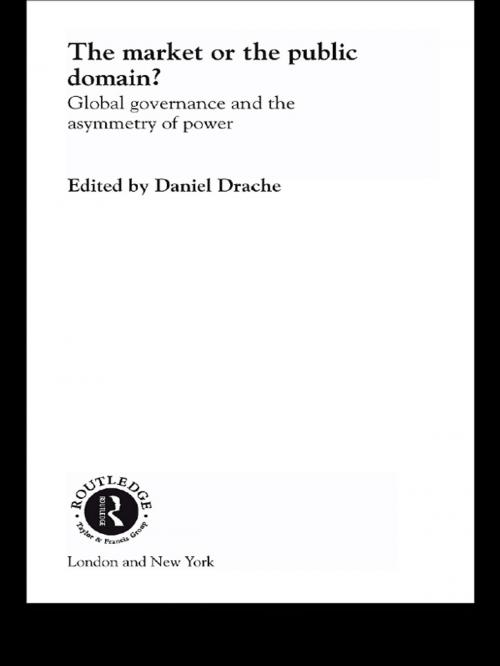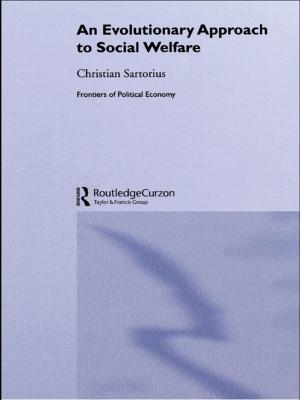| Author: | ISBN: | 9781134576760 | |
| Publisher: | Taylor and Francis | Publication: | July 8, 2005 |
| Imprint: | Routledge | Language: | English |
| Author: | |
| ISBN: | 9781134576760 |
| Publisher: | Taylor and Francis |
| Publication: | July 8, 2005 |
| Imprint: | Routledge |
| Language: | English |
Examining the powerful idea of the return, reconstitution and redeployment of the public domain in a post-Seattle and post-Washington consensus world order, this innovative book is the most forward-looking and comprehensive examination of the need to rethink the tenants of global free trade.
In the past two decades, countries have focused on broadening and guaranteeing market access, and as the pendulum swings back for the market, the issue of investing in the public domain becomes a priority. The authors believe that devising new institutions of governance for a globalizing world requires fundamental change nationally and internationally. They argue that new public spaces, places and services are required to strengthen democracy and create sanctuaries in society where the market mechanism cannot reach. The public domain is an incipient concept that enables states to reduce the intrusiveness of markets and at the same time develop a strong national performance to reduce the inequality and social exclusion in an increasingly volatile global economy.
This original volume boasts an impressive list of international contributors who have demonstrated innovation and leadership in their fields. It will strongly appeal to advanced students, academics and policy makers involved in the field of global governance and international political economy.
Examining the powerful idea of the return, reconstitution and redeployment of the public domain in a post-Seattle and post-Washington consensus world order, this innovative book is the most forward-looking and comprehensive examination of the need to rethink the tenants of global free trade.
In the past two decades, countries have focused on broadening and guaranteeing market access, and as the pendulum swings back for the market, the issue of investing in the public domain becomes a priority. The authors believe that devising new institutions of governance for a globalizing world requires fundamental change nationally and internationally. They argue that new public spaces, places and services are required to strengthen democracy and create sanctuaries in society where the market mechanism cannot reach. The public domain is an incipient concept that enables states to reduce the intrusiveness of markets and at the same time develop a strong national performance to reduce the inequality and social exclusion in an increasingly volatile global economy.
This original volume boasts an impressive list of international contributors who have demonstrated innovation and leadership in their fields. It will strongly appeal to advanced students, academics and policy makers involved in the field of global governance and international political economy.















